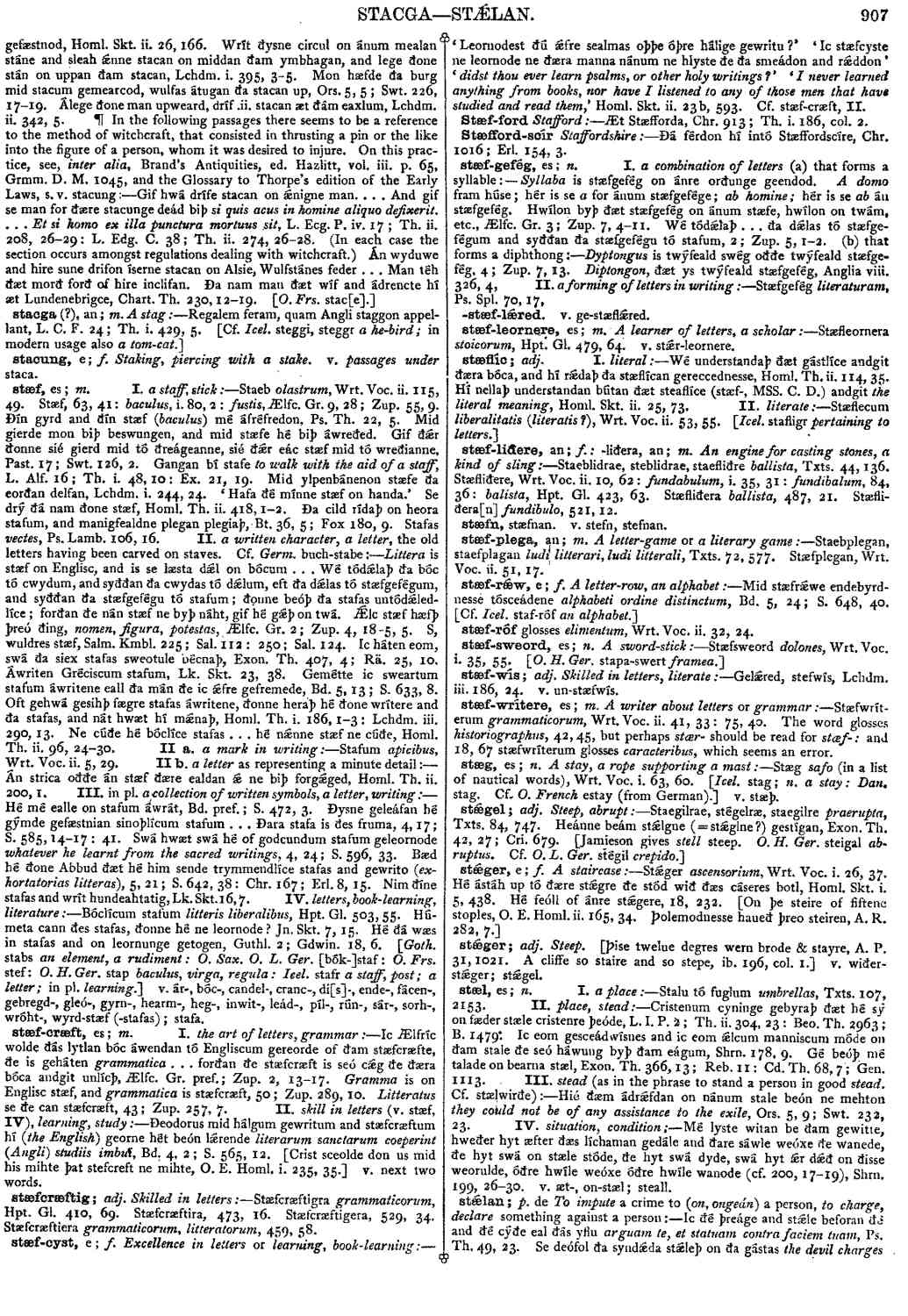stǽlan
- verb [ weak ]
-
Ic ðé þreáge and stǽle beforan ðé and ðé cýðe eal ðás yflu
arguam te, et statuam contra faciem tuam,
- Ps. Th. 49, 23.
-
Se deófol ða syndǽda stǽleþ on ða gástas
the devil chargesthe spirits with their sinful deeds,
- Wulfst. 256, 7: Exon. Th. 84, 16; Cri. 1374.
-
Stǽleþ fǽhðe
declares enmity,
- Cd. Th. 305, 2; Sat. 640.
-
Hé bútan leahtrum wæs clǽne geméted ðara ðinga ðe hine mon forewrégde and on stǽlde
absque crimine accusatus fuisse inventus est,
- Bd. 5, 19; S. 639, 31.
-
Wé ðec sóð on stǽldun
we brought a true charge against thee,
- Exon. Th. 130, 17; Gú. 439.
-
Wið mé árison leáse gewitan and stǽldon on mé ðæt ic náwþer ne nyste ne ne worhte
exurgentes testes iniqui quae ignorabam interrogabant me,
- Ps. Th. 34, 12.
-
Ic wolde andettan and stǽlan ongeán mé sylfne míne scylda
pronuntiabo adversum me injustitias meas,
- 31, 6.
-
Synne stǽlan,
- Menol. Fox 569; Gn. C. 54.
-
Fǽhðe ic wille on weras stǽlan (
of the threatened deluge
),- Cd. Th. 81, 27; Gen. 1352.
-
Ic gefrægn mǽg óðerne billes ecgum on bonan stǽlan
I heard that one kinsman with the edge of the sword brought home to the slayer the death of the other
(? Eofor killed Ongentheow, who had slain his brother), Beo. Th. 4964; B. 2485.
Bosworth, Joseph. “stǽlan.” In An Anglo-Saxon Dictionary Online, edited by Thomas Northcote Toller, Christ Sean, and Ondřej Tichy. Prague: Faculty of Arts, Charles University, 2014. https://bosworthtoller.com/28645.
Checked: 0